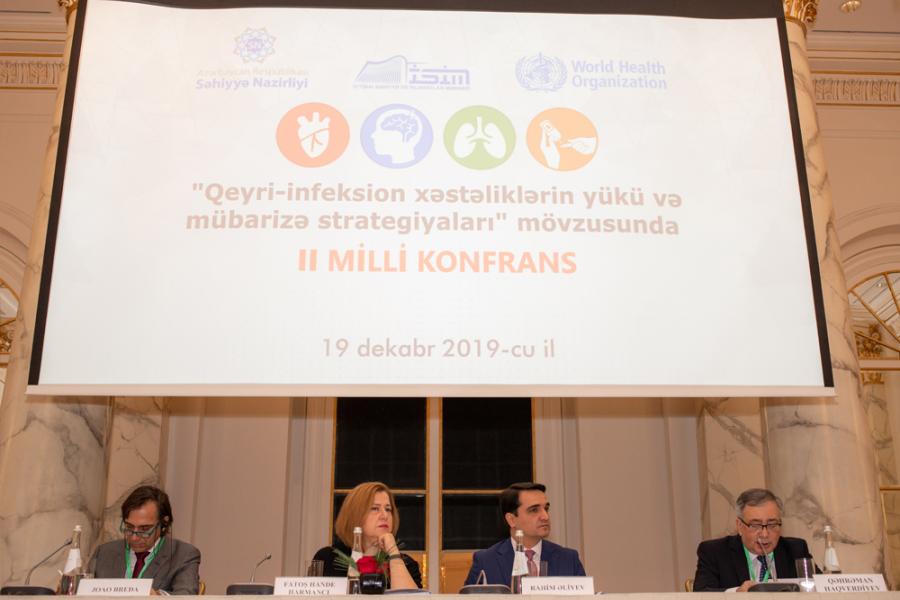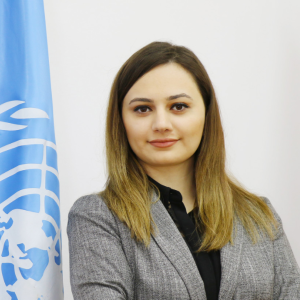WHO supports second national conference on burden of non-communicable diseases in Azerbaijan
19 December 2019
- The Ministry of Health of the Republic of Azerbaijan, the Public Health and Reforms Centre (PHRC) organised the second national conference on the burden of non-communicable diseases (NCDs) with the support of the World Health Organization (WHO).

The participants discussed the implementation of the strategy on fight against non-communicable diseases in Azerbaijan in 2015-2020, which was approved by the presidential decree on 23 December 2015, achievements, challenges and obstacles in this area, as well as the results of the STEPS survey.
STEPS survey, implemented by PHRC with the support of WHO, is a research methodology that helps countries develop their surveillance systems to control and fight against NCDs. The goal of the second national survey (the first one was conducted in 2011) was to provide up-to-date information using WHO-approved methods by assessing the prevalence, current situation and future tendencies of NCD causes and risk factors among the Azerbaijani population.
Deputy Minister of Health Rahim Aliyev stated that combating non-communicable diseases worldwide and country-level has become one of the priorities of health care systems and states: “In modern times, rapid urbanization and globalization of unhealthy lifestyles have contributed to the increase of NCDs burden. The main purpose of today’s conference is to review the work done in this direction and to strive for better results,” he concluded.
Gahraman Hagverdiyev, Director of PHRC said that non-communicable diseases are linked to risk factors such as smoking, overweight and malnutrition. “The results of the STEPS survey have once again demonstrated that it is important for people to develop healthy lifestyles,” he said.
WHO Representative in Azerbaijan Dr Hande Harmanci underlined the importance of collaboration to achieve that success in this area. She highly appreciated the participation of doctors and medical professionals, representatives of other fields and agencies at the conference. “A comprehensive approach is needed to prevent and control NCDs, which will involve many sectors working together including Ministries of Health, Education, Youth and Sport, mass media, local NGOs, and others,” she stressed.
In her video message, Dr Bente Mikkelsen, the Director of the Division of Noncommunicable Diseases and Promoting Health through the Life-course at the WHO Regional Office for Europe highlighted the importance of improving the quality of health services and enhancing the information capacity.
Joao Breda, Head of the WHO European Centre for Prevention and control of NCD and Dr Ivo Rakovac, Programme Manager of NCD Surveillance spoke about the comparative analysis of the STEPS in Azerbaijan and implications for the prevention of NCDs and achieving SDGs with prevention of NCDs.
The second part of the conference was devoted to scientific issues and included presentations by the representatives of Azerbaijan Medical University, Scientific Research Institute of Pulmonary Diseases, PHRC, National Oncology Centre, Republican Endocrinology Centre and other leading institutions and centres. The participants discussed issues related to the prevention of cardiovascular, oncological diseases, diabetes and lung diseases, their risk factors, including the lack of physical activity, overweight and obesity, salt consumption and alcohol use.
Physical activity was done during the breaks to fight against physical inactivity and stress highlighting the importance of cooperation to promote healthy lifestyles among the population.


